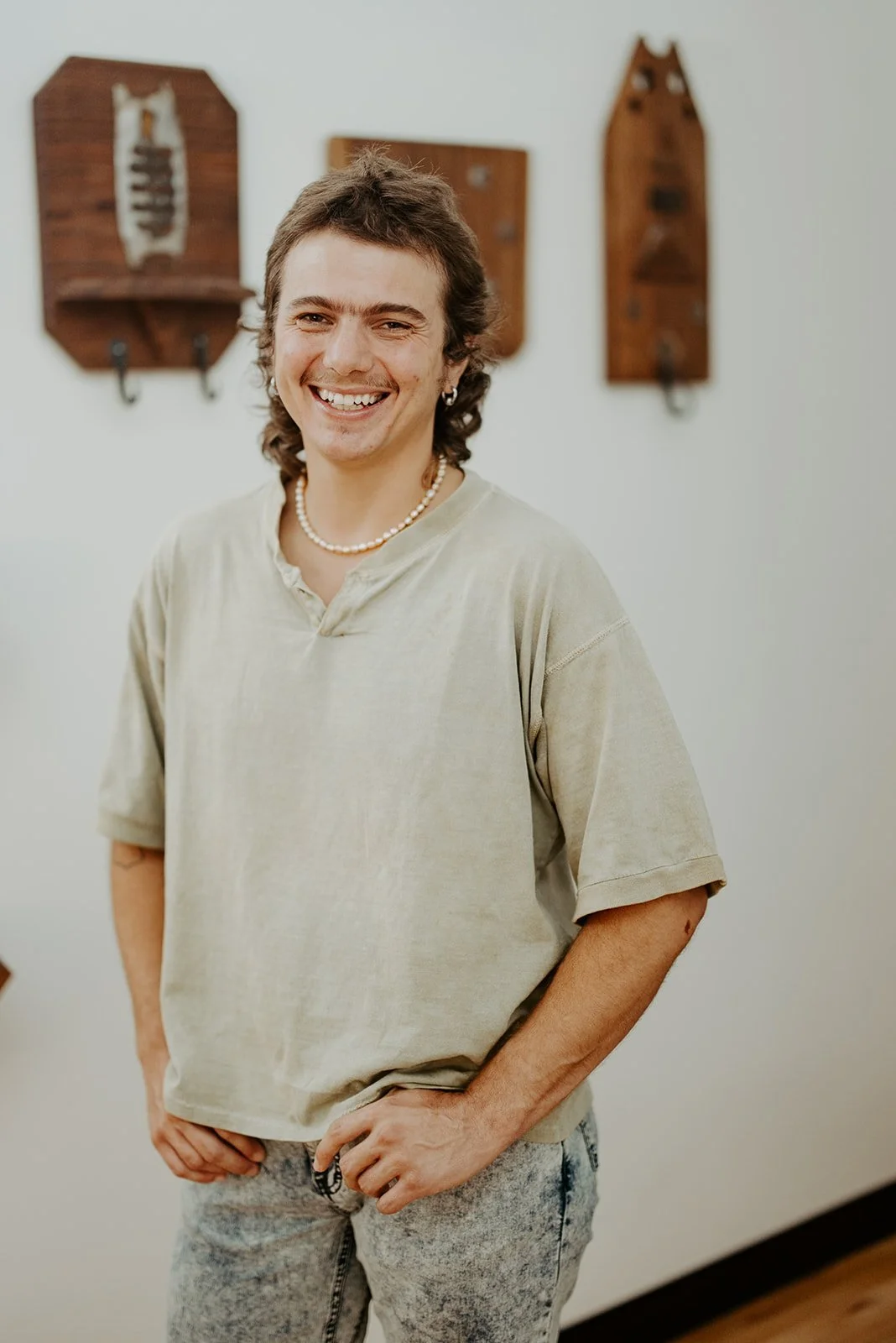Meet Casper Thorn (he/they)
As a kid I always imagined I’d be a psychologist. I went to college holding this dream and completed a Bachelor’s in psychology. By the end of my time there I was feeling disenchanted; noticing the way capitalism influenced the kinds of research being done and the people who’s healing this research would support. I took some time away, working in kitchens, and remembered how much I love working with my hands. The desire to support people in their healing never left me, but as I learned more about trauma it became clear that holistic healing must include the body.
I began to practice Aikido and study Shiatsu, and found my orientation to myself, others and the world shifting in ways that felt right. I knew I wanted to combine bodywork with Somatic Experiencing and when I could afford to I began the training. Along the way I’ve lost and gained connection with many modalities, and I love to hear about others’ paths to finding the techniques and beliefs that really resonate with them. Somatic Experiencing has taught me so much, and deeply changed the way I’m able to show up for myself and my clients.
For some time I worked in an inpatient treatment center, providing bodywork for the residents there. My time there deepened my ability to meet and care for people when they are experiencing big nervous system dysregulation and reminded me how aligned it feels for me to work with people as they are making big shifts for themselves in both spirit and body. I was excited to find out about Threshold and to be welcomed into a space that feels aligned with these values.
What do you love about being a body worker?
I feel honored and humbled so often doing bodywork. I believe that our bodies hold deep wisdom and a force that wants to move us towards healing. I love to be a witness and a support to people who are trying to connect with that knowing. I love when a client and I have created enough safety and respect to start getting playful and creative about what kinds of movement or touch might help them feel a little better!
What does “trauma-informed” mean to you?
In studying Somatic Experiencing I have learned and felt that trauma is not in the event of trauma, but in the body’s response. Trauma happens when the system is flooded, and, often, when we are unable to complete nervous system responses that might have kept us emotionally regulated or physically safe. For me, as a bodyworker, this means I tend towards slowness and titration when establishing a connection with a new client. A client and I might decide together that physical touch doesn’t happen right away, or that we begin with exploring the client’s energetic boundaries. It also means consent is vital to establishing safety, so I appreciate working with clients who feel good about checking in with themselves and me about how touch feels or what needs to shift.
Sometimes trauma diminishes our ability to use interoception to feel into the body, so being trauma-informed for me also means supporting clients to connect with the messages their bodies are relaying to them. It feels vital that the client not feel like the bodywork is just being done to them, but rather that we are communicating and collaborating to do work that holds the client’s needs and desires at the heart of it all.
What do you hope to explore or deepen in your practice next year?
I am beginning Craniosacral training very soon! I’m already so passionate about working with the nervous system and I am excited to learn more about a modality that works very physically with the skull, brain, and spine. I’m looking forward to seeing how Craniosacral work connects with Somatic Experiencing. I’m interested, too, to see how this training connects with what I know about Shiatsu, the body’s meridians, and Five Element Theory.
What do you most hope clients take away from a session with you?
I hope to support people in being more curious about themselves and their bodies. I love to slow things down, take time to notice the body’s impulses, allowing these to be more deeply felt and understood. Somatic Experiencing training has really helped me to feel the way a dysregulated nervous system impacts health! Receiving this work has been very helpful to me as a practitioner. I hope to provide a safe container for the people I work with to make connections and find relief from symptoms that they never imagined they could change or change their relationship to.
I want my clients to feel supported and respected, and know that the work we do is a collaboration with the intention to help them find their way to deeper feelings of embodiment, regulation, and ease.

